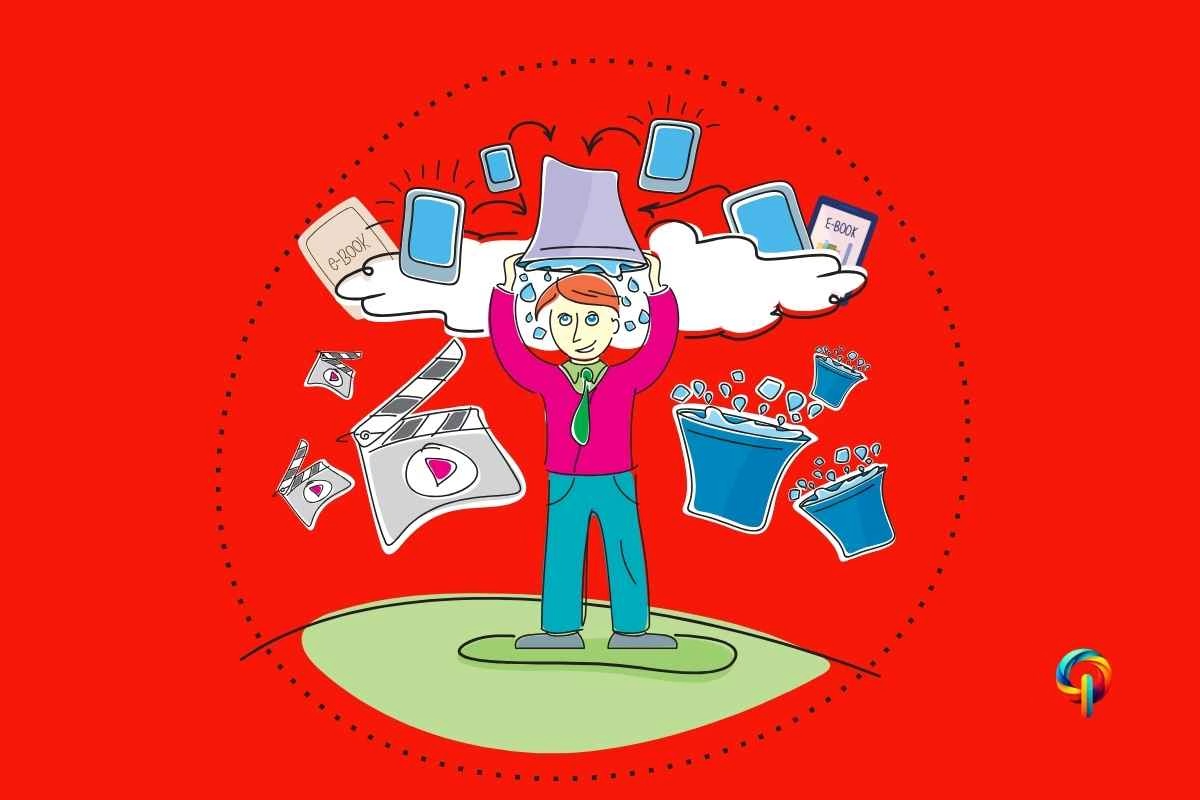
This document explores eBook Challenges when writing an eBook. It identifies key challenges such as topic selection, maintaining motivation, overcoming writer’s block, organizing content effectively, and managing time constraints. The text further emphasizes the importance of addressing these hurdles to improve the quality of the final product and increase the likelihood of success in a competitive market. Strategies for overcoming these challenges and improving the overall writing process are also provided. Finally, the piece highlights how conquering these obstacles enhances an author’s confidence and strengthens the connection with their readers.
Contents Of The Article
What are the common eBook challenges faced when writing an eBook?
Writing an eBook is an exciting journey, but it’s not always a smooth ride. Whether you’re a first-time author or someone with a few projects under your belt, the process of putting your ideas into words can feel daunting. From finding the right topic to staying motivated, tackling eBook challenges often becomes a hurdle that can slow down progress or even bring the process to a halt.
But here’s the good news: every one of these eBook challenges comes with a solution. By understanding the common hurdles and learning how to overcome them, you can make the writing process smoother and more enjoyable. This article explores the most frequent challenges writers face when creating an eBook and provides practical tips to help you push through and finish your manuscript.
So, if you’ve ever struggled with writer’s block, felt overwhelmed by the scope of your project, or wondered if your ideas are good enough,
you’re not alone.
Let’s dive into “Why You Should Write an eBook Today and Start Earning by Tomorrow“
What are eBook Challenges on Writing?
Creating an eBook is an exciting journey, but it’s not without its fair share of eBook challenges. Whether you’re writing your first eBook or adding another to your collection, the process isn’t always smooth. These eBook challenges can sometimes feel like roadblocks, but recognizing them early can help you prepare and navigate through them successfully. From choosing the perfect topic to staying consistent with writing, every stage has its unique difficulties. Understanding these challenges is the first step toward overcoming them and turning your eBook idea into a reality.
Let’s explore the most common hurdles and how to tackle them.
So, what exactly are these eBook challenges on writing? Let’s break them down in detail:
1. Finding the Right Topic
One of the biggest eBook challenges writers face is deciding what to write about. You might have a lot of ideas swirling in your head, but narrowing them down to one compelling topic can feel like trying to catch a butterfly in a storm.
Questions like, “Will people actually want to read this?”
or “How to Write Online Content That Stands Out?”
or “Why I Shouldn’t Write, Why I Should Write?”
can leave you stuck before you even start.
For example, if you’re passionate about fitness, do you write about general health tips, or do you focus on a specific niche like yoga for beginners or strength training for seniors? These eBook challenges of choosing the right topic are crucial because the topic sets the foundation for your entire eBook. A topic that’s too broad can feel overwhelming to write (and read), while one that’s too niche might not attract enough readers.
2. Writer’s Block
Ah, the dreaded writer’s block. It’s one of the most common eBook challenges that writers face. It’s that frustrating feeling when you sit down to write, but the words just won’t come. You stare at a blank screen, your mind feels like a desert, and every sentence you manage to type feels forced or uninspired.
Writer’s block can strike for many reasons—maybe you’re feeling overwhelmed by the scope of your project, or perhaps you’re worried your ideas aren’t good enough. Sometimes, it’s just a lack of inspiration. Whatever the cause, this particular eBook challenge can bring your progress to a screeching halt, leaving you feeling stuck and frustrated.
3. Staying Motivated
Writing an eBook is a marathon, not a sprint. It’s easy to feel excited at the beginning, but as the days turn into weeks, staying motivated can become one of the most common eBook challenges. Distractions, self-doubt, and the sheer amount of work involved can make it hard to keep going.
Imagine this: You start strong, writing a few pages every day. But then life gets in the way—work deadlines pile up, family responsibilities call, and suddenly, your eBook takes a backseat. Before you know it, weeks have passed, and you haven’t written a single word. Out of all the eBook challenges, staying motivated over the long haul is one of the toughest hurdles writers face.
4. Organizing Your Content
Even if you have great ideas, organizing them into a clear and logical structure can be tricky. Without a solid outline, your eBook can end up feeling disjointed or overwhelming for readers.
For instance, if you’re writing a how-to guide, you need to present the information in a way that’s easy to follow. Do you start with the basics and build up to advanced techniques? Or do you dive straight into the most important points?
Figuring out how to present your ideas in a way that flows naturally is a common hurdle for many writers.
5. Time Management
Finding time to write can be one of the most significant eBook challenges, especially if you’re juggling other responsibilities like a full-time job, family, or personal commitments. It’s easy to postpone writing when life gets hectic, but procrastination can slow your progress and make the entire process feel even more overwhelming.
Think about it: You might start with the best intentions to write every evening, but after a long day of work, preparing dinner, and taking care of the kids, you’re too drained to focus on your eBook. Among the various eBook challenges, balancing your writing goals with the demands of daily life is a common hurdle that many authors encounter.
6. Self-Doubt and Perfectionism
Many writers struggle with self-doubt, wondering if their work is good enough or if anyone will even care. Perfectionism can also creep in, making you obsess over every word and delaying your progress.
You might find yourself rewriting the same paragraph over and over, trying to make it “perfect.” Or you might second-guess your ideas, thinking, “What if people don’t like this?” These mental barriers can be some of the toughest challenges to overcome because they come from within.
7. Research Overload
If your eBook requires research, navigating the sea of information is one of the biggest eBook challenges you might face. Knowing when to stop researching and start writing can be tricky. Too much research can easily lead to procrastination, while too little might leave you feeling unprepared or uncertain about your content.
For example, if you’re writing a historical fiction eBook, you might find yourself spending hours (or even days) diving into the time period, only to realize that you’ve barely made any progress on your actual writing. On the flip side, skipping necessary research can result in an eBook that lacks depth or accuracy, which could disappoint your readers. Balancing research and writing is one of the essential eBook challenges that every author needs to overcome to create a well-rounded and compelling manuscript.
8. Maintaining Consistency
Writing an eBook comes with its fair share of eBook challenges, and maintaining consistency is one of the most common hurdles. Whether it’s sticking to a steady writing schedule or keeping the tone and style uniform throughout the book, staying on track can be a real test of discipline.
Imagine this: You start your eBook with a casual, conversational tone that engages readers, but by the time you reach the middle chapters, the style shifts to a more formal approach. Such inconsistencies can confuse your audience and weaken the overall impact of your eBook. Among the many eBook challenges, ensuring consistency in both your writing progress and the tone of your content requires focus, careful planning, and a dedicated effort.
Why These Challenges Matter
These eBook challenges aren’t just obstacles—they’re opportunities to grow and evolve as a writer. By identifying and addressing these hurdles, you can develop effective strategies to overcome them, making the eBook creation process smoother and more enjoyable.
So, if you’ve ever found yourself stuck, overwhelmed, or unsure about your eBook writing journey, know that you’re not alone. The good news is that every eBook challenge comes with a solution. In the upcoming sections, we’ll explore practical tips and strategies to help you navigate these challenges confidently and turn your eBook vision into a reality.
Why eBook Challenges Matter on Writing: A Detailed Exploration
Writing an eBook is an exciting and rewarding journey, but it’s not without its challenges. From finding inspiration to staying consistent, these hurdles can sometimes feel overwhelming. However, overcoming these challenges isn’t just about making the process easier—it’s about creating a high-quality eBook that stands out in a competitive market.
Here, the eBook Challenges Matter on Writing:
- 1. Ensures a Smooth and Efficient Writing Process
- 2. Improves the Quality of Your Content
- 3. Helps You Stand Out in a Competitive Market
- 4. Boosts Your Confidence and Growth as a Writer
- 5. Creates a Deeper Connection with Your Readers
Let’s dive deeper into why these eBook challenges matter and how addressing them can transform your writing journey.
1. Ensures a Smooth and Efficient Writing Process
Writing an eBook is a significant project that demands time, effort, and dedication. Without addressing the challenges that come your way, the process can quickly become messy and disorganized. For instance, if you don’t have a clear plan or outline, you might spend hours writing only to realize your ideas don’t flow well. This can lead to frustration, wasted time, and even the temptation to give up.
Why it matters:
- Saves time and energy: Overcoming challenges like writer’s block or disorganization helps you work more efficiently. For example, creating a detailed outline before you start writing can save you hours of rewriting or restructuring later. An outline acts as a roadmap, guiding you through each chapter and ensuring your ideas are logically connected. This way, you can focus on writing instead of constantly fixing mistakes or reworking sections.
- Reduces stress: A smooth writing process makes the experience more enjoyable and less overwhelming. When you have a clear plan, you’re less likely to feel stuck or frustrated. Knowing what to write next eliminates the anxiety of staring at a blank page, making the entire process feel more manageable and even enjoyable.
- Keeps you on track: Tackling challenges like procrastination or lack of focus helps you stay consistent and maintain momentum. Setting small, achievable goals—such as writing 500 words a day—ensures steady progress toward your goal. This consistency not only helps you finish your eBook faster but also builds a sense of accomplishment that keeps you motivated.
By addressing these challenges, you can create a writing routine that works for you and keeps your project on track. A well-organized process allows you to focus on what truly matters: crafting a compelling and high-quality eBook that resonates with your readers.
2. Improves the Quality of Your Content
The quality of your eBook is directly tied to how well you navigate the challenges that arise during the writing process. Whether it’s self-doubt, lack of research, or difficulty organizing your thoughts, these hurdles can compromise the clarity, depth, and overall impact of your content. Overcoming these challenges ensures that your eBook is not only informative but also engaging, polished, and professional.
Why it matters:
- Engages readers: High-quality content captivates your audience, keeping them hooked from the first page to the last. For example, overcoming the challenge of self-doubt allows you to share your unique insights and ideas with confidence. When you believe in your message, it shines through in your writing, making your eBook more compelling and relatable. Readers are more likely to stay engaged when they feel your passion and expertise in every word.
- Builds credibility: A well-researched, well-structured eBook positions you as an authority in your niche. Readers are more likely to trust and value your work if it’s polished and professional. For instance, including accurate data, real-life examples, and actionable advice shows that you’ve put in the effort to create something valuable. This credibility not only strengthens your reputation but also encourages readers to recommend your eBook to others.
- Enhances readability: Addressing challenges like poor organization or unclear writing ensures that your eBook flows smoothly. A well-structured eBook with clear headings, subheadings, and logical transitions makes it easier for readers to follow and absorb your message. For example, breaking down complex ideas into simple, digestible sections helps readers understand and retain the information better. This readability keeps your audience engaged and ensures they get the most out of your content.
By confronting these challenges head-on, you ensure that your eBook is not only informative but also a pleasure to read. High-quality content leaves a lasting impression on your audience, making them more likely to return to your work or explore other projects you’ve created.
Real-Life Example
Imagine you’re tackling one of the common eBook challenges while writing about healthy eating. If you don’t address the issue of disorganization, your content might jump from one topic to another without a clear structure. For example, you could start discussing meal planning in one paragraph and suddenly shift to exercise tips in the next. This lack of organization can confuse readers and make your eBook feel disconnected.
However, by recognizing these eBook challenges early and creating a detailed outline, you can organize your content into clear, engaging sections—like “Benefits of Healthy Eating,” “Meal Planning Tips,” and “Easy Recipes.” This structured approach ensures a logical flow that keeps readers hooked. Enhancing your eBook with visuals, such as a sample meal plan or a chart comparing nutrient-dense foods, further improves the quality and readability of your work.
By addressing these eBook challenges head-on, you create content that not only informs but also inspires and connects with your audience. High-quality, well-organized content builds trust, encourages engagement, and leaves a lasting impression, making your eBook a valuable and impactful resource for readers.
3. Helps You Stand Out in a Competitive Market
The eBook market is incredibly competitive, with thousands of new titles published every day. If you don’t address the challenges of writing, your eBook risks getting lost in the noise. Overcoming these hurdles is what will make your work unique, memorable, and impactful. Standing out in such a crowded space isn’t just about having a great idea—it’s about executing that idea with precision, care, and authenticity.
Why it matters:
- Creates a unique voice: Challenges like finding inspiration or developing a consistent writing style push you to dig deeper and discover what makes your perspective special. For example, instead of following trends, you might draw from your personal experiences, unique insights, or innovative ideas. This authenticity sets your eBook apart from others in your niche, making it more relatable and engaging for your audience.
- Delivers exceptional value: By tackling challenges like research overload or lack of focus, you can ensure that your eBook is packed with actionable insights and valuable information that meets your readers’ needs. For instance, instead of skimming the surface of a topic, you might dive deep into specific problems your audience faces and provide practical solutions. This level of detail and relevance makes your eBook a go-to resource, ensuring it stands out in a sea of generic content.
- Builds a strong brand: A well-crafted eBook reflects your professionalism and dedication, helping you establish a strong personal or professional brand that resonates with your audience. When readers see the effort and care you’ve put into your work, they’re more likely to trust and respect you as an authority in your field. This trust can lead to long-term relationships, repeat readers, and even opportunities for collaboration or growth.
How to Stand Out in the eBook Market
- Find Your Unique Angle: Instead of covering the same topics as everyone else, identify a fresh perspective or niche that hasn’t been explored extensively. For example, if you’re writing about productivity, you might focus on a specific audience, like freelancers or students, and tailor your content to their unique challenges.
- Focus on Quality Over Quantity: It’s better to write a shorter eBook that’s packed with value than a longer one filled with fluff. Prioritize quality research, clear writing, and actionable advice to ensure your content delivers real value to your readers.
- Polish Your Writing: Invest time in editing and refining your work. A well-polished eBook with no grammatical errors, clear formatting, and a professional layout makes a strong impression and sets you apart from less polished competitors.
- Add Personal Touches: Share personal stories, anecdotes, or examples that connect with your readers on an emotional level. This humanizes your content and makes it more relatable and memorable.
- Leverage Visuals and Design: A visually appealing eBook with professional design elements, such as custom illustrations, charts, or infographics, can make your work stand out. Visuals not only enhance readability but also make your content more shareable and engaging.
Real-Life Example
Imagine you’re writing an eBook about time management. Instead of creating a generic guide, you decide to focus on a specific audience, like working parents. You share personal stories about balancing work and family life, provide tailored tips for managing time effectively, and include practical tools like printable schedules or checklists.
By addressing the unique challenges of your target audience and delivering actionable, relatable content, your eBook stands out in a crowded market. Readers appreciate the personalized approach and are more likely to recommend your eBook to others in similar situations.
Final Thoughts
Standing out in the competitive eBook market isn’t just about having a great idea—it’s about executing that idea with care, creativity, and authenticity. By overcoming writing challenges, you can create a unique, high-quality eBook that resonates with your audience and establishes you as a trusted authority in your niche.
Remember, every challenge you face is an opportunity to refine your work and make it truly exceptional. By addressing these hurdles head-on, you can create an eBook that not only stands out but also makes a lasting impact on your readers.
4. Boosts Your Confidence and Growth as a Writer
Writing an eBook is a significant achievement, but it’s easy to feel discouraged when faced with challenges like writer’s block, self-doubt, or fear of failure. These obstacles can make you question your abilities and slow your progress. However, overcoming these hurdles does more than just help you complete your eBook—it builds your confidence, sharpens your skills, and prepares you for future writing projects.
Why it matters:
- Encourages personal growth: Each challenge you overcome teaches you something new about yourself and your writing process. For example, pushing through writer’s block might reveal new techniques for generating ideas or staying motivated. You might discover that brainstorming with a friend, taking a walk, or free-writing for 10 minutes helps unlock your creativity. These small breakthroughs not only help you finish your eBook but also equip you with tools to handle future challenges.
- Builds resilience: The more challenges you conquer, the more confident you become in your ability to tackle future projects, no matter how complex or ambitious. Writing an eBook is a marathon, and every hurdle you overcome—whether it’s organizing your thoughts, refining your voice, or meeting a deadline—strengthens your resilience. This resilience is invaluable, not just for writing but for any creative or professional endeavor you pursue.
- Fuels momentum: Success breeds success. Every small victory, like finishing a chapter, receiving positive feedback, or seeing your ideas come together, motivates you to keep going. These moments of progress remind you of your capabilities and push you to strive for excellence. Over time, this momentum builds, making it easier to stay focused and committed to your goals.
By embracing these challenges, you not only complete your eBook but also emerge as a stronger, more confident writer. This newfound confidence can inspire you to take on even bigger projects, whether it’s writing a series of eBooks, starting a blog, or exploring other creative outlets.
How Challenges Build Confidence and Growth
- Overcoming Writer’s Block: When you find ways to push through writer’s block—whether by changing your environment, setting smaller goals, or trying new writing exercises—you learn to trust your creativity. This builds confidence in your ability to generate ideas, even when inspiration feels elusive.
- Facing Self-Doubt: Self-doubt is a common challenge for writers, but overcoming it teaches you to trust your voice and ideas. For example, sharing your work with a trusted friend or writing group and receiving positive feedback can help you see the value in your writing. This validation boosts your confidence and encourages you to keep going.
- Meeting Deadlines: Sticking to a writing schedule and meeting deadlines, even when it feels difficult, proves to yourself that you’re capable of discipline and perseverance. This sense of accomplishment fuels your motivation and prepares you for future projects.
- Refining Your Skills: Every challenge you face—whether it’s organizing your thoughts, improving your grammar, or crafting compelling narratives—helps you grow as a writer. Over time, these small improvements add up, making you a more skilled and confident writer.
Real-Life Example
Imagine you’re writing an eBook about personal finance. At first, you feel overwhelmed by the amount of information and struggle to organize your thoughts. You decide to break the project into smaller tasks, starting with an outline. As you work through each section, you gain clarity and confidence in your ability to explain complex topics in simple terms.
When you hit a rough patch and feel stuck, you try free-writing for 10 minutes, which helps you uncover new ideas. By the time you finish your eBook, you’ve not only created a valuable resource but also developed a deeper understanding of your writing process. This experience boosts your confidence and inspires you to tackle your next project with enthusiasm.
Final Thoughts
Writing an eBook is more than just a creative project—it’s a journey of personal growth and self-discovery. The challenges you face along the way are opportunities to learn, improve, and build confidence in your abilities. By embracing these hurdles, you not only complete your eBook but also emerge as a stronger, more resilient writer, ready to take on even bigger challenges in the future.
Remember, every challenge you overcome is a step forward in your writing journey. Celebrate your progress, no matter how small, and use it as fuel to keep moving toward your goals. With each victory, you’ll grow more confident, skilled, and prepared to create work that truly makes an impact.
5. Creates a Deeper Connection with Your Readers
At its core, your eBook is more than just a collection of words—it’s a way to connect with your audience, share your knowledge, ideas, or story, and make a meaningful impact. Overcoming writing challenges ensures that your content is clear, engaging, and relatable, helping you forge a stronger bond with your readers. When your eBook resonates with your audience, it becomes more than just a resource; it becomes a tool for building trust, sparking conversations, and inspiring action.
Why it matters:
- Builds trust: Readers are more likely to trust and connect with your message if it’s presented in a polished and professional manner. Overcoming challenges like poor organization, unclear writing, or lack of focus ensures that your eBook is easy to follow and understand. For example, a well-structured eBook with clear headings, logical flow, and concise language makes it easier for readers to absorb your message. When readers feel that your content is reliable and well-crafted, they’re more likely to trust your expertise and return to your work in the future.
- Encourages engagement: High-quality content inspires readers to engage with your work—whether by sharing it with others, leaving reviews, or reaching out to you directly. For instance, if your eBook provides actionable advice or solves a specific problem, readers are more likely to recommend it to friends, post about it on social media, or even contact you for further guidance. This engagement not only expands your reach but also creates a sense of community around your work.
- Resonates emotionally: By addressing challenges like finding your authentic voice or crafting compelling narratives, you can create content that speaks to your readers on a deeper level. For example, sharing personal stories, relatable examples, or heartfelt insights helps readers see themselves in your writing. This emotional connection makes your eBook more impactful and memorable, ensuring that your message stays with them long after they’ve finished reading.
When you overcome these challenges, you create an eBook that not only informs but also inspires. It becomes a powerful tool for building relationships, sparking conversations, and leaving a lasting impression on your audience.
How to Create a Deeper Connection with Your Readers
- Know Your Audience: Understand your readers’ needs, challenges, and preferences. Tailor your content to address their specific pain points and provide solutions that resonate with them.
- Be Authentic: Write in your own voice and share personal experiences or insights. Authenticity helps readers connect with you on a human level, making your content more relatable and trustworthy.
- Use Storytelling: Incorporate stories, anecdotes, or case studies to illustrate your points. Stories are powerful tools for engaging readers and making your message more memorable.
- Focus on Clarity: Avoid jargon or overly complex language. Write in a way that’s easy to understand, ensuring your message is accessible to a wide audience.
- Encourage Interaction: Include calls-to-action (CTAs) that invite readers to engage with your work. For example, ask them to share their thoughts, leave a review, or connect with you on social media.
Real-Life Example
Imagine you’re writing an eBook about overcoming anxiety. Instead of simply listing techniques, you share your own journey of managing anxiety, including the struggles you faced and the strategies that helped you. You also include relatable examples, such as a story about a busy professional who learned to balance work and self-care.
By addressing your readers’ emotions and providing actionable advice, your eBook becomes more than just a guide—it becomes a source of comfort and inspiration. Readers feel understood and supported, which strengthens their connection to your work and encourages them to engage with you further.
Final Thoughts
Creating a deeper connection with your readers is one of the most rewarding aspects of writing an eBook. By overcoming challenges like poor organization, unclear writing, or lack of authenticity, you ensure that your content is not only informative but also engaging and impactful.
When your eBook resonates with your audience, it builds trust, encourages engagement, and leaves a lasting impression. This connection transforms your eBook from a simple resource into a powerful tool for building relationships and making a meaningful impact.
So, as you navigate the challenges of writing, remember: every hurdle you overcome is an opportunity to create something that truly connects with your readers. By addressing these challenges head-on, you can craft an eBook that inspires, empowers, and leaves a lasting legacy.
More FAQs on eBook Challenges
1. What are the biggest challenges in writing an eBook?
Writing an eBook comes with its fair share of challenges. One of the most common hurdles is finding the right topic—something that resonates with your audience while also aligning with your expertise and passion. Staying motivated throughout the process can also be tough, especially when faced with writer’s block or self-doubt. Organizing your ideas into a coherent structure is another challenge, as poor organization can lead to disjointed content. Additionally, producing high-quality, error-free content requires time, effort, and attention to detail. Finally, standing out in a crowded market is no small feat, as readers have countless options to choose from. Overcoming these challenges is key to creating an eBook that is both impactful and successful.
2.How do I choose the right topic for my eBook?
Choosing the right topic for your eBook is crucial to its success. Start by conducting market research to identify gaps or trends in your niche. Look at popular blogs, forums, and social media discussions to understand what your target audience is interested in. Analyze reader preferences and pain points to ensure your topic addresses a real need. At the same time, pick a subject you’re passionate about and knowledgeable in. Writing about something you genuinely care about will not only keep you motivated but also make your content more authentic and engaging. A well-chosen topic is the foundation of a successful eBook.
3.How do I stay motivated while writing an eBook?
Staying motivated during the eBook writing process can be challenging, especially when the project feels overwhelming. One effective strategy is to set realistic, achievable goals. Break your eBook into smaller sections or chapters and focus on completing one at a time. Creating a consistent writing schedule can also help you stay on track—dedicate specific times each day or week to writing. Celebrate small milestones, like finishing a chapter or reaching a word count goal, to keep your motivation high. Surrounding yourself with supportive peers or joining writing communities can provide encouragement and accountability. Remember, progress is progress, no matter how small.
4.What tools can help me write and edit my eBook?
Several tools can make the eBook writing and editing process easier and more efficient. Scrivener is a popular tool for organizing and structuring your content, allowing you to break your eBook into manageable sections. Grammarly is an excellent resource for checking grammar, spelling, and tone, ensuring your writing is polished and professional. Canva is a user-friendly design tool that can help you create eye-catching eBook covers and visuals. Hemingway Editor is another useful tool that improves readability by highlighting complex sentences and suggesting simplifications. Google Docs is great for collaborative writing and cloud storage, making it easy to access your work from anywhere. These tools can save you time and help you produce a high-quality eBook.
5. How do I overcome writer’s block?
Writer’s block is a common challenge that can slow down your progress. To overcome it, try taking short breaks to clear your mind and recharge. Changing your environment, such as writing in a café or park, can also help spark creativity. Brainstorming techniques like mind mapping or free-writing can generate new ideas and get your creative juices flowing. Setting a timer and writing non-stop for 10–15 minutes can help you push through the initial resistance. Revisiting your outline or conducting additional research can also reignite inspiration. Remember, writer’s block is temporary, and experimenting with different strategies can help you find what works best for you.
6. How do I ensure my eBook is error-free?
Ensuring your eBook is error-free requires a combination of tools, feedback, and careful review. Start by using editing tools like Grammarly or ProWritingAid to catch grammar, spelling, and punctuation errors. Hiring a professional editor can provide a thorough review and ensure your content is polished and professional. Seeking feedback from beta readers or writing groups can offer fresh perspectives and highlight areas for improvement. Reading your eBook aloud can help you catch awkward phrasing or errors that you might miss when reading silently. Finally, take a break before the final proofreading to review your work with fresh eyes. A well-edited eBook reflects your professionalism and enhances the reader’s experience.
7. What are the benefits of writing an eBook?
Writing an eBook offers numerous benefits, both personally and professionally. It allows you to share your knowledge and expertise with a wider audience, establishing you as an authority in your niche. An eBook can also help you build your personal or professional brand, making you more recognizable and credible. From a financial perspective, eBooks can generate passive income through sales or serve as a lead magnet to grow your email list. Additionally, creating an eBook provides a tangible product that can be repurposed into other content formats, such as blog posts, webinars, or courses. Overall, writing an eBook is a rewarding endeavor that can open up new opportunities and help you make a meaningful impact.
8. How long does it take to write an eBook?
The time required to write an eBook varies depending on factors like length, complexity, and your writing speed. On average, it can take anywhere from a few weeks to several months. Setting a realistic timeline and breaking the project into smaller tasks can help you stay on track. For example, dedicate specific days or hours to writing, editing, and formatting. Consistency is key—even writing for just 30 minutes a day can lead to significant progress over time. Remember, the goal is not to rush but to create a high-quality eBook that resonates with your audience.
9. Can I write an eBook if I’m not an expert?
Absolutely! You don’t need to be an expert to write an eBook. Thorough research, interviews with experts, and presenting information in a unique or practical way can add value to your content. Focus on solving a specific problem or addressing a particular need for your readers. For example, if you’re writing about a topic you’re still learning, share your journey and the lessons you’ve picked up along the way. Readers often appreciate relatable, actionable content over overly technical or academic writing. As long as your eBook provides value and is well-researched, it can be a valuable resource for your audience.
10. How do I make my eBook engaging?
Making your eBook engaging involves a combination of storytelling, practical examples, and a conversational tone. Use storytelling to connect with readers emotionally and make your content more relatable. Include practical examples, case studies, or real-life scenarios to illustrate your points and provide actionable insights. Write in a conversational tone to make your eBook feel approachable and easy to read. Break up text with visuals like images, charts, or infographics to enhance readability and keep readers interested. Use headings, bullet points, and short paragraphs to make your content easy to scan. An engaging eBook not only holds your readers’ attention but also leaves a lasting impression.
Turning eBook Challenges into Opportunities: Mastering the Art of Writing an Impactful eBook
Writing an eBook comes with its fair share of challenges, but these challenges also bring valuable opportunities for growth and learning. By addressing these hurdles head-on, writers can create eBooks that truly resonate with their audience. Common obstacles like choosing the right topic, staying motivated, and maintaining quality content are all part of the process. Successfully overcoming these barriers is key to crafting an eBook that stands out in today’s competitive market.
Practical steps can make all the difference—such as conducting in-depth research, setting achievable goals, establishing a consistent writing schedule, and brainstorming creative ideas. Leveraging tools like Scrivener for writing, Grammarly for editing, and Canva for design can streamline the process and help authors focus on quality.
The secret lies in developing a unique voice, prioritizing meaningful connections with readers, and delivering content that builds trust and engagement. Every challenge you face is an opportunity to refine your skills, elevate your work, and leave a lasting impression on your audience. Writing an eBook isn’t just about creating a product—it’s about growing as an author, sharing your expertise, and making an impact that truly matters.





